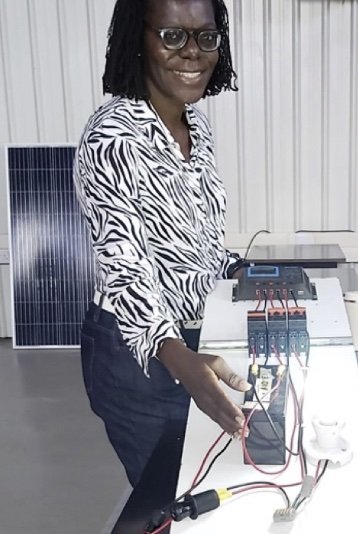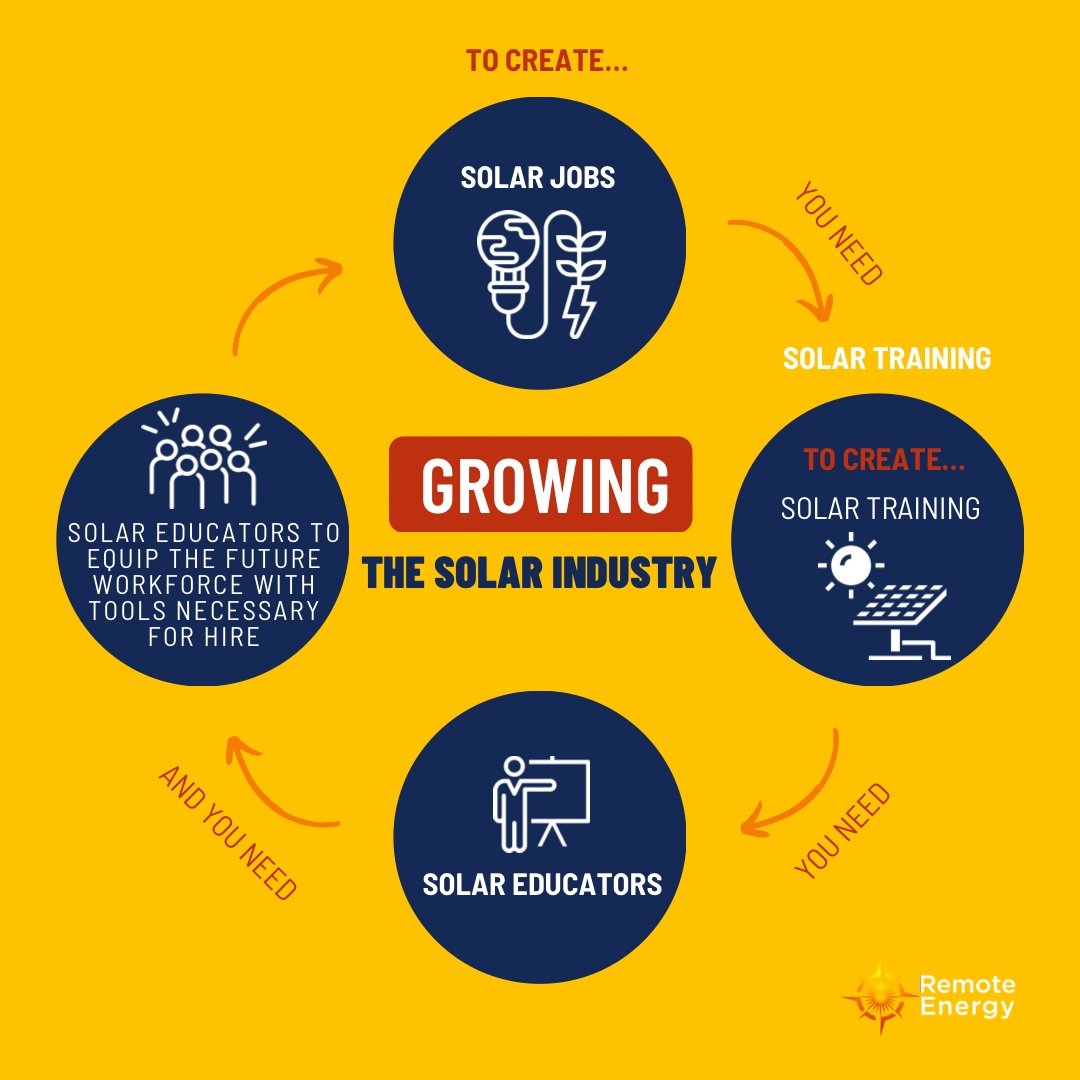Solar Training Program Series: Why is Remote Energy Focused on Training Solar Educators?
By: Laura Walters, Carol Weis, and Jessica Perrilliat Smith
Worldwide, the need for solar technicians is growing. In 2018, the global employment in the solar PV sector was 3.6 million people and IRENA is projecting that by 2050 there will be a 5X growth in the sector, employing around 18.7 million people. Countries are increasing renewable energy targets and committing to rural electrification to reduce the impacts of climate change. To reach the number of qualified solar technicians needed to meet the worldwide renewable energy targets, a focus on high-quality training for new solar educators is essential.
The Remote Energy ASPIRE Solar Educator Program has used our team’s 100+ years of combined experience in the solar industry to develop a model for local schools to easily create their own solar training program. Our model includes an easy to follow building-block curriculum, hands-on locally purchased solar lab kits, and an in-depth Solar Educator Training course run by experienced solar industry experts.
Investing in the training and mentoring of local solar educators allows them to take the lead in adapting and modifying a customized workforce development program to move with their regional industry trends. It takes time for new solar educators to practice teaching solar concepts and apply their understanding of how varying environmental conditions will influence solar lab results. This high level of cognitive processing of information takes time and effort, but results in better educators and better solar training programs than short classes!
Technical schools can add solar classes to their existing electrician or engineering programs to build new workforce career tracks for a variety of high paying solar jobs.
What makes the Remote Energy ASPIRE Solar Educator program unique?
The educators purchase and use equipment that can be found locally - not shipped in from a donor country where the make and model may be different from the US version of a product.
Participants in our program make relationships with local solar suppliers/ distributors who can work with them as their program grows.
Our model is environmentally sustainable because we are not excessively flying foreign instructors around the world, but rather are doing long term virtual mentoring with local instructors.
Local solar educators are able to regionalize their program and create a unique path to meet their solar market’s needs.
Educators speak the local language, can customize curriculum, and teach using locally-relatable analogies.
We are committed to training and mentoring solar educators worldwide so they, in turn, can bring solar energy education into their own communities, in their language, and adapt their program to meet the specific needs of their local PV market. It is so important to invest in local knowledge to catalyze inclusive solar powered climate action.
Stay tuned for our next installment of this series that talks about how we teach a hands-on lab class from halfway around the world.
Interested in starting a solar training program in your region? Contact us today: https://www.remoteenergy.org/programs-for-instructors or want to support the development of Solar Training Programs around the world? We would love your support: https://www.remoteenergy.org/donate



